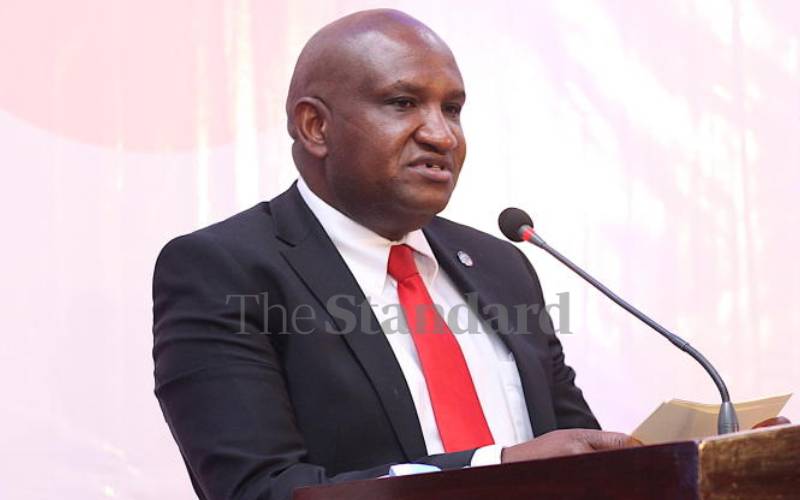×
The Standard e-Paper
Smart Minds Choose Us

Commissioner-General Githii Mburu. [Wilberforce Okwiri, Standard]
The Kenya Revenue Authority (KRA) has revealed it recovers up to Sh100 billion every year from tax evaders and those who submit less than what they ought to. It is these tax evaders, said National Treasury and Planning Chief Administrative Secretary Nelson Gaichuhie, which the taxman will focus on to grow revenue.